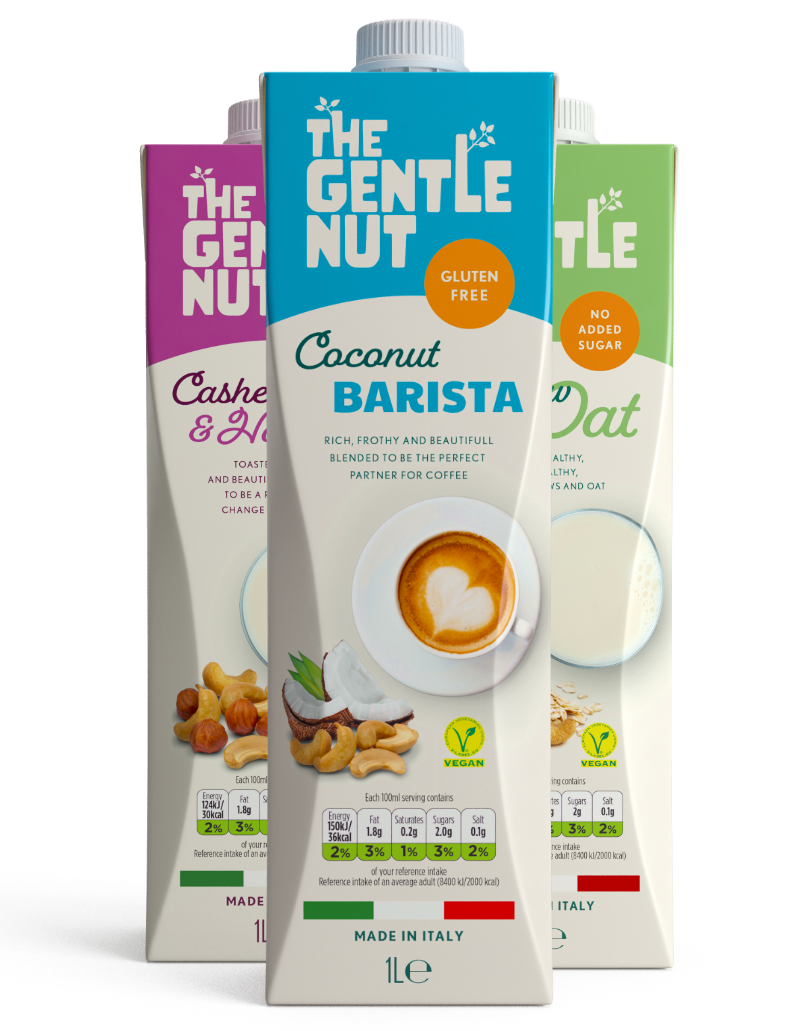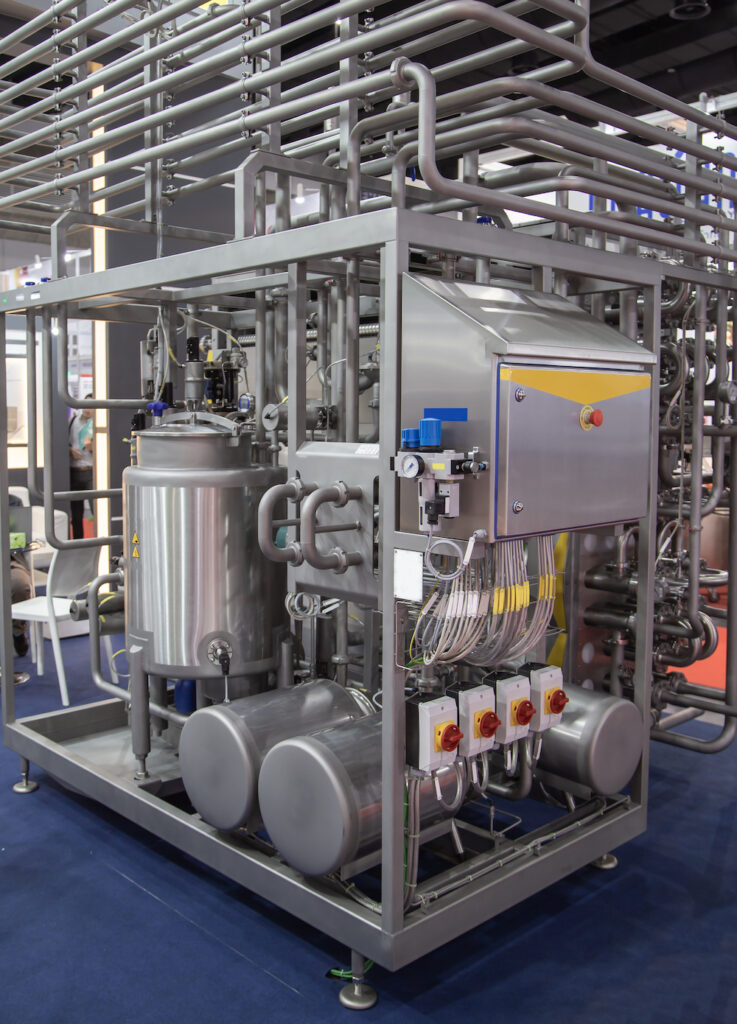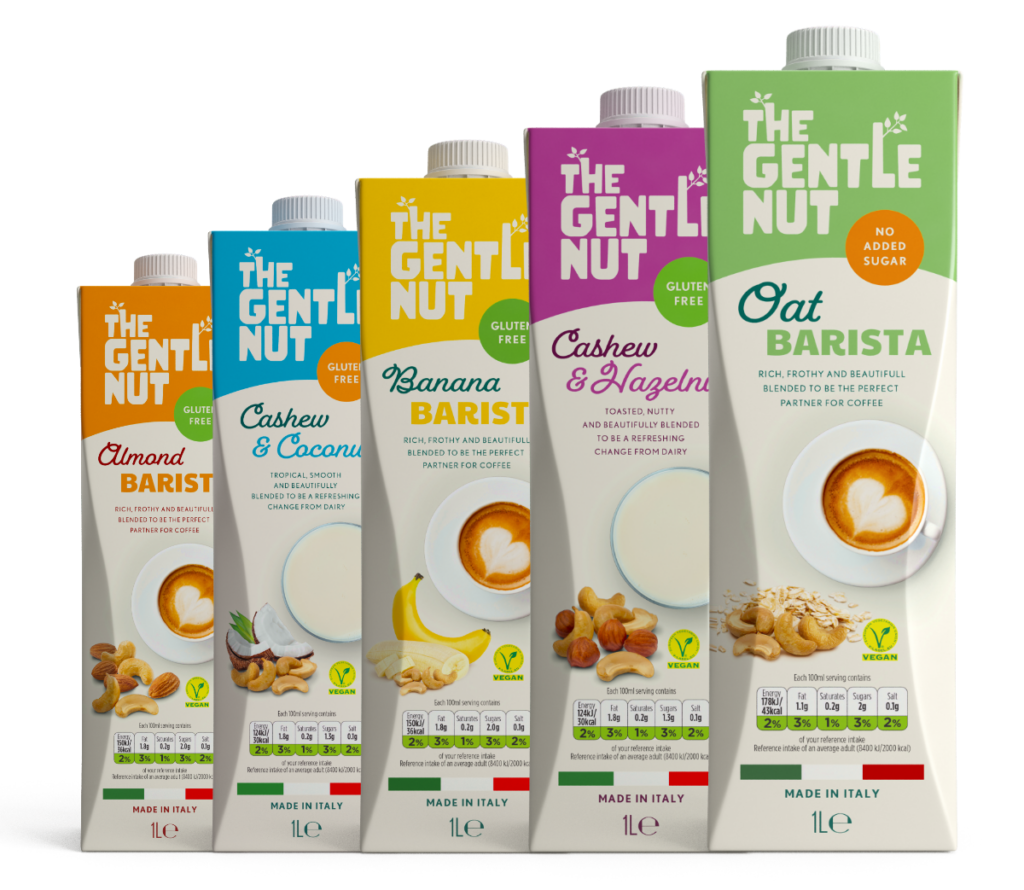
Our company – BalTraWed is a European partner (Baltic Partner) of international group involved into supply of cashew nuts, cocoa beans from West Africa & further processing in Europe.

The quality of the supplied products is carefully checked and controlled at all stages of the supply chain – from harvesting in Africa, production to delivery to the final consumer.
“The Gentle Nut” drinks produced in a most modern highly technologically equipped plant in Italy, using also and the latest UHT technology for our production.
Indirect Ultra-heat treatment – UHT – maximizes the destruction of microorganisms in dairy products and dairy alternatives with saving natural aroma of nuts. This flexible and cost- efficient technology enables innovative product portfolios, a reduced carbon footprint and, in combination with aseptic packaging, – long product shelf life.
So the use of this packaging technology allows us to increase the shelf life of “The Gentle Nut” up to two years, when stored in a dry place at temperatures from 0°C to +25°C. Our production company has recently achieved the highest level of certification standards for both BRC and IFS.

The availability and consumption of plant-based, also known as nondairy, milk alternatives have been on the rise. Sales of nondairy milk alternatives have more than doubled (Bridges 2018), whereas consumption of traditional cow’s milk has dropped (Singhal et al. 2017). This increase may be due to plant-based milks being perceived as “natural,” as well as a rise in veganism and avoidance of lactose (Schus- ter et al. 2018). The primary plant-based dairy alternatives are almond, soy, coconut, cashew, and rice. This publication discusses the nutritional content, potential health benefits, and potential risks of cashew milk.
Cashew, a tree nut, is the third most consumed tree nut in the United States (Mah et al. 2017). Cashew milk is made primarily from a blend of cashews and water. Other ingre- dients may include almonds, calcium carbonate, vitamins E, A, and D2, salt, natural flavor, and lecithin (an emulsifier). Other ingredients, including sugar, are added if the milk is flavored.
To make cashew milk, the first step is to wash and dry the kernels. The cashew nuts are soaked in hot water to remove the hull, and then soaked again in cold deionized water. They are drained, rinsed, and wet-milled. The resulting slurry is filtered and pasteurized or treated at ultra-high temperature (UHT) for shelf stability (Manzoor et al. 2017). Lastly, other ingredients, such as gums, lecithin, and flavors, are added to thicken, emulsify, and enhance flavor, respectively (White n.d.).
